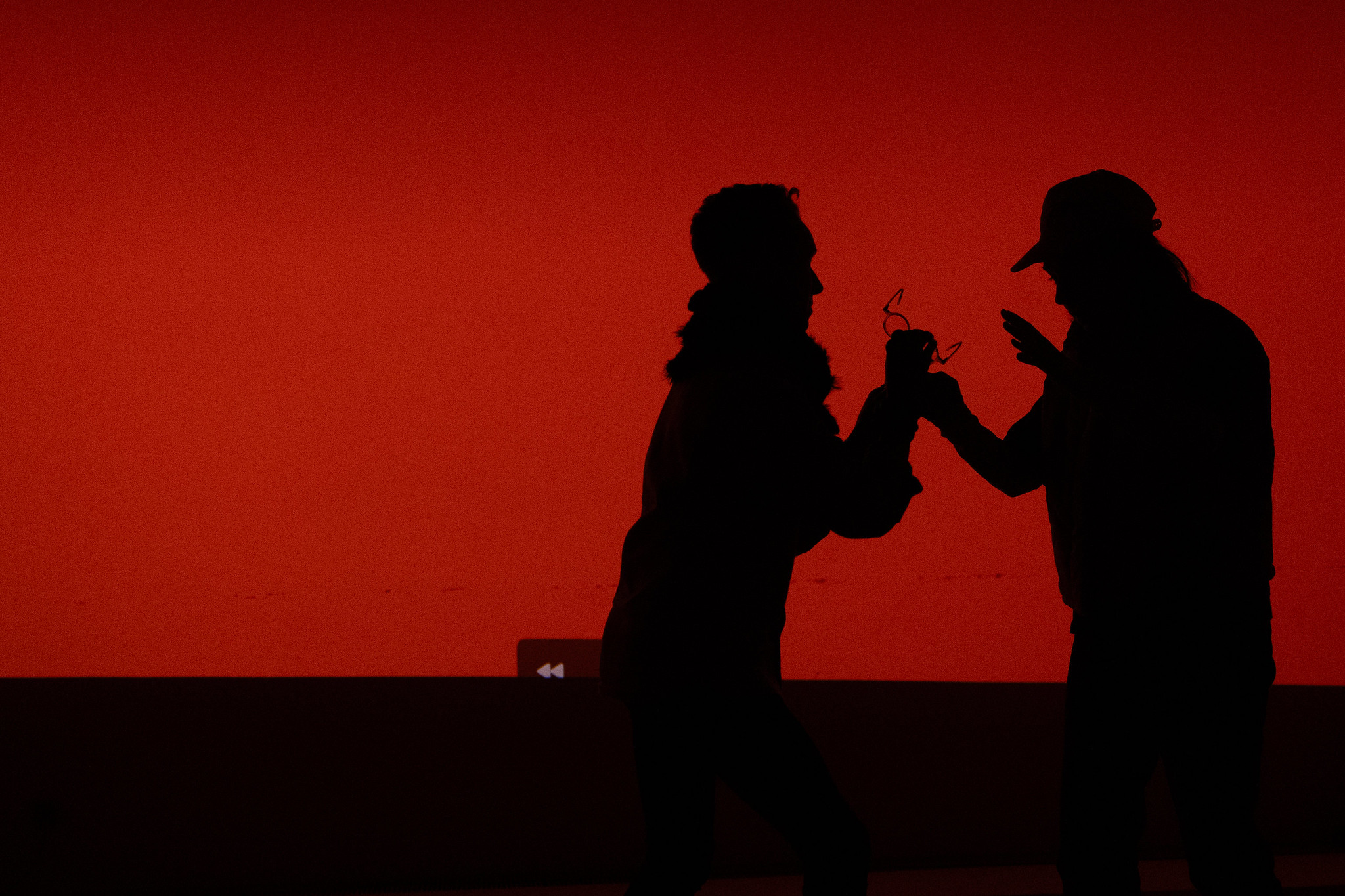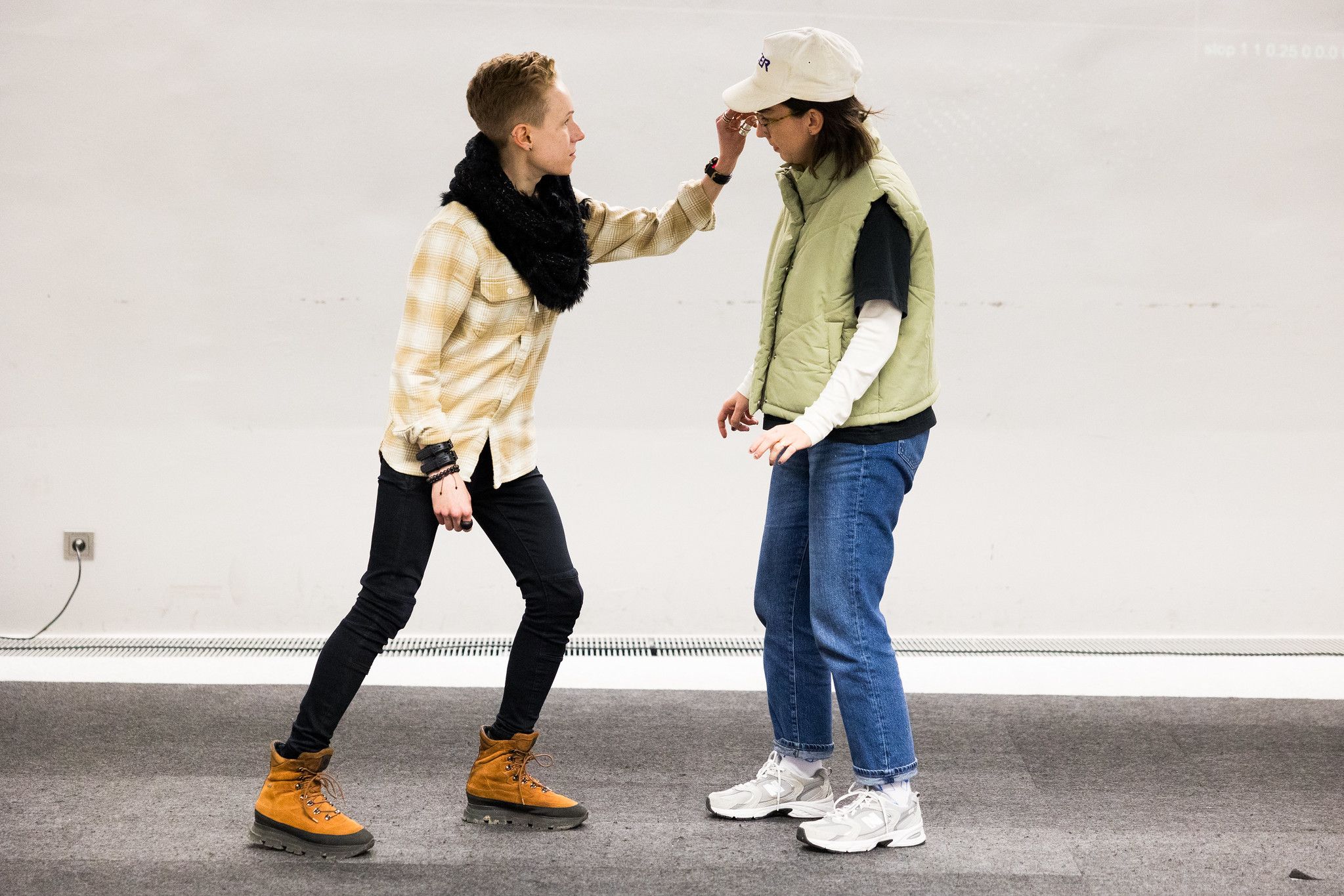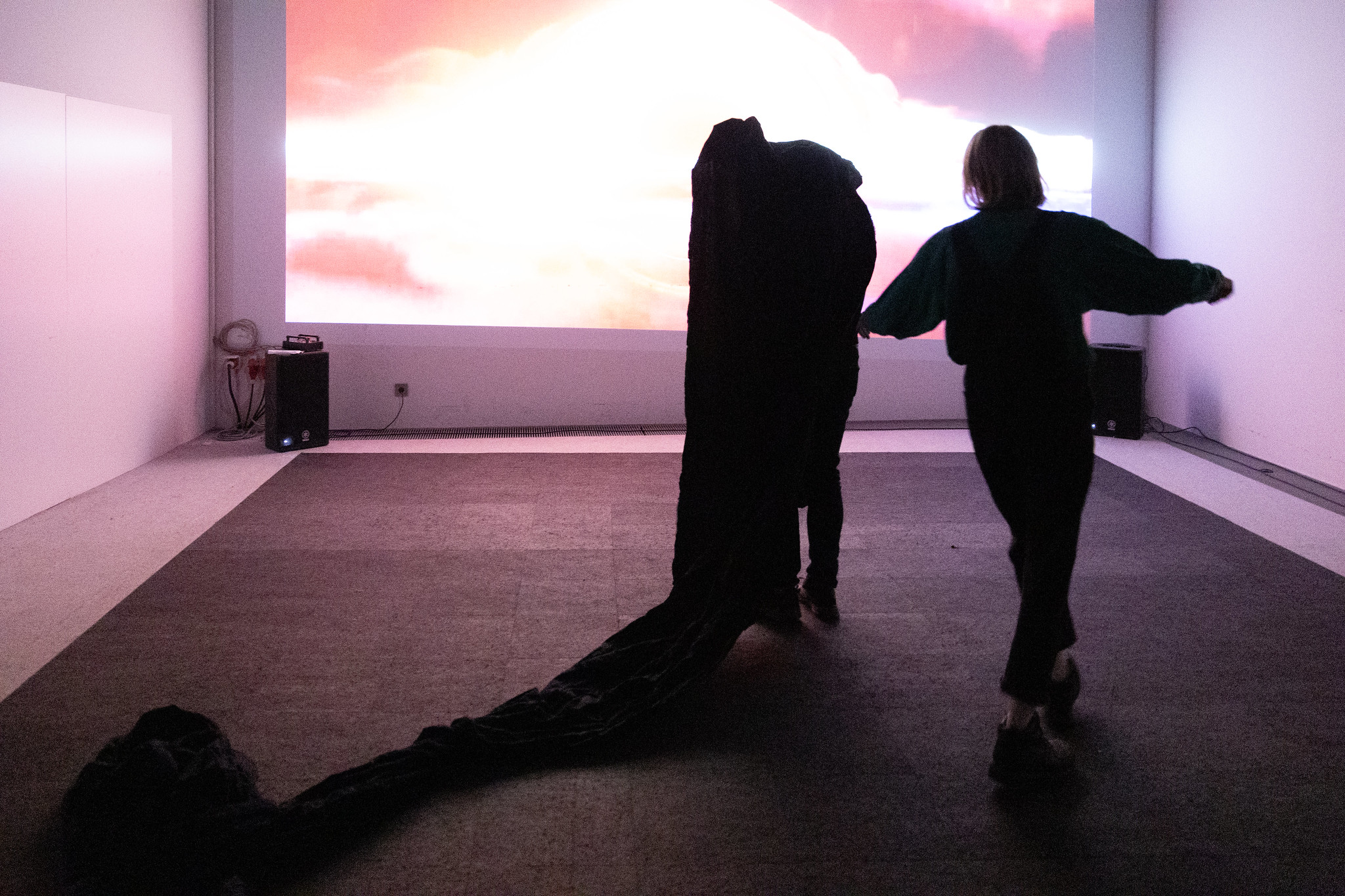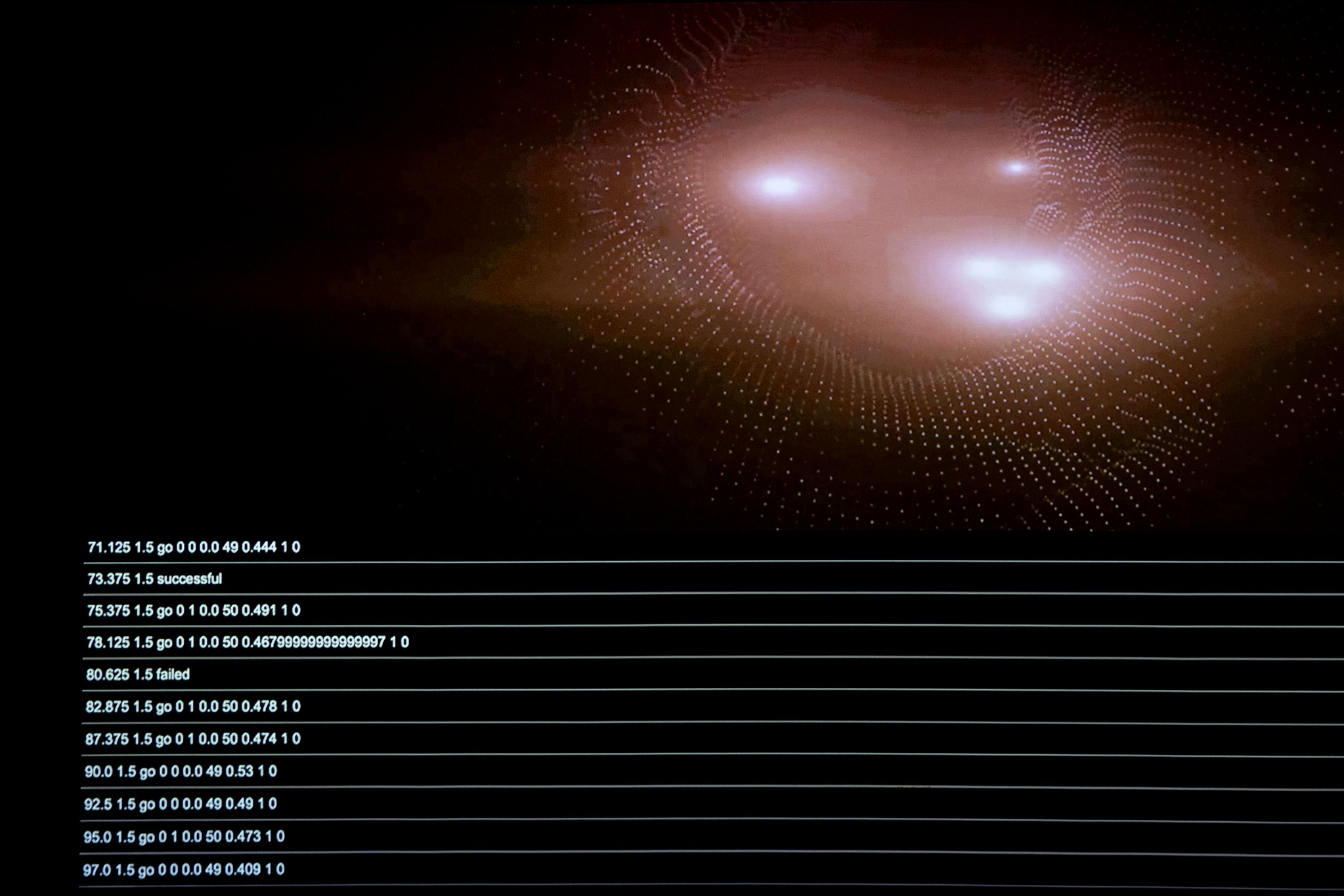Creative changes of perspective are thematised in the fourth chapter of the Fall Term. The Fall Term is part of the FOUNDING LAB, a collaborative prototype of a new university.
The FOUNDING LAB is a co-operation between the Interdisciplinary Transformation University (IT:U) and Ars Electronica. The aim is to discover, develop and present innovative methods and concepts for the challenges of digital transformation. Experts, scientists and innovators from various disciplines work together to explore approaches for a transdisciplinary digital transformation. The FOUNDING LAB Summer School launched the prototype of a new university. Students examined the current state of digital transformation. During the Ars Electronica Festival 2023, initial ideas and results were presented to the public at the FOUNDING LAB Forum. During the FOUNDING LAB Fall Term, these results will now be explored in greater depth in a series of seminars comprising six sections, known as chapters.
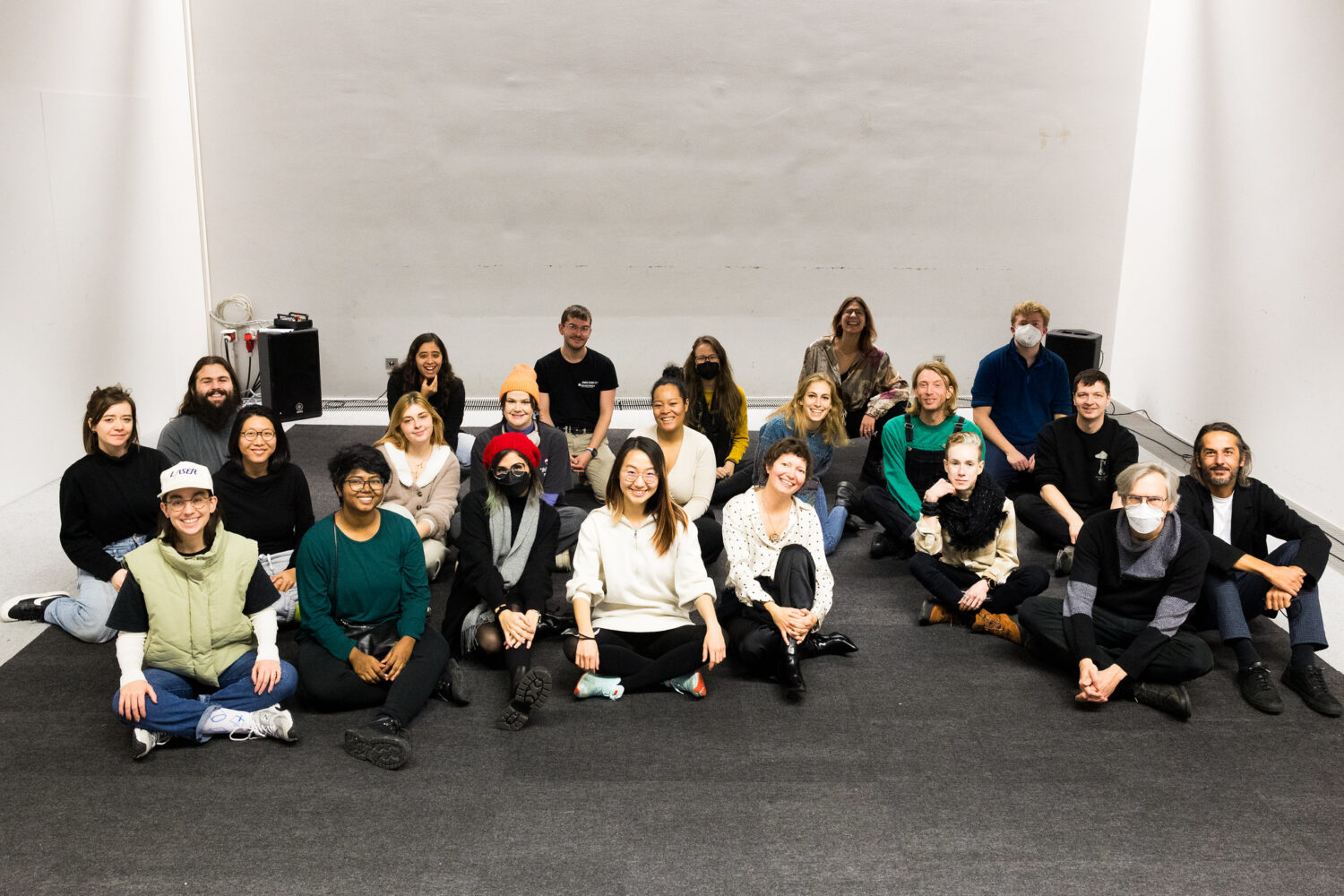
What happened in the previous chapters? The first chapter analysed the complex infrastructures of digital systems. The second chapter focussed on data and coding. The third chapter dealt with the interface between humans and machines. The fourth chapter, which recently ended, builds on this theme by applying the change of perspective explored in the last chapter to the exploration of alternative methods of interspecies communication. The aim is to open up new perspectives and promote a differentiated understanding of reality in our networked world.
Chapter 4: Interfaces & Visualisations with Barbara Lippe, Dietmar Offenhuber and Jiabao Li
The fourth chapter of the FOUNDING LAB Fall Term, titled Interfaces & Visualisations, explores the interfaces between social dynamics and the representation of data in physical and virtual worlds. Fellows Dietmar Offenhuber, Associate Professor and Chair of Art and Design at Northeastern University’s Department of Information Design and Urban Affairs, Jiabao Li, Assistant Professor at the University of Texas at Austin and Founding Director of the Ecocentric Future Lab, and Barbara Lippe, co-founder of Holodeck VR and PhD candidate in Game Studies, lead the fourth chapter of FOUNDING LAB Fall Terms. Together, they are rethinking conventional notions of reality by changing perspectives. With the help of various scientific approaches, the students will look beneath the surface of traditional thinking. This can mean putting themselves in the shoes of other life forms such as animals or trying out new ways of presenting knowledge.
The fourth chapter begins with introductory words by Barbara Lippe on the topic of virtual reality and Dietmar Offenhuber, who raises fundamental questions about data and subjective experiences. Jiabao Li presents methods of communication with other species, including ethical considerations. Practical exercises, multimedia presentations and discussions promote a change of perspective, which is deepened during the zoo visit on the second day. Students observe animals and critically reflect on the relationship between humans and animals.
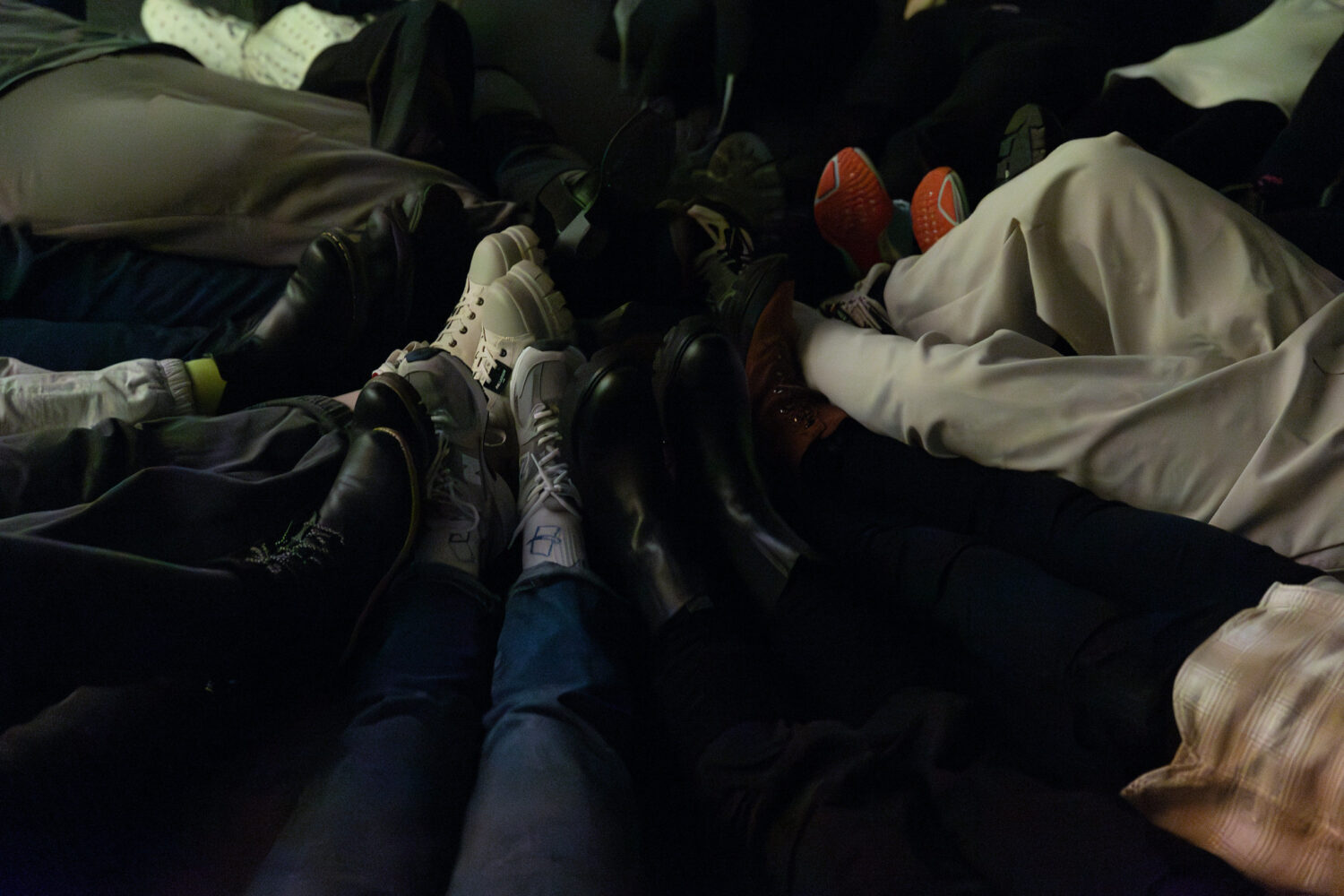
With the aim of co-creation, a method of joint creative process, the students reflect on their observations of animals in the Animal Studies and Design Workshop. The starting point is a guide to exploring the chosen animal species in physical, exploratory and imaginative terms. How does the animal differ from humans? How does it experience the world in comparison to you and which senses determine its perception? In a further step, the students’ imagination is called upon to imitate the animal based on their analyses. As in every chapter, the students’ thoughts take center stage and are presented in the form of multimedia performances. The focus is not only on the movements and sounds of the animals, but also on the way they perceive the world.
On the last day of the fourth chapter, students are asked to deepen their exploration of concepts of non-human reality that have emerged from the excursion to the zoo. This means that they develop scenarios in which different realities intersect, collide or overlap. The final task is to present an interactive performance from an animal perspective using alternative forms of expression.
To summarise, we think about how we see the world. We do this by looking at different perspectives, for example through critical thinking in data science, or game studies, in philosophy and in media theory. We analyse and rethink how we understand reality in order to promote a deeper understanding in a networked world. This is the aim of the FOUNDING LAB, which actively addresses the challenges of digital change with different approaches.
The fifth chapter of the FOUNDING LAB Fall Term will focus on media and misinformation. Students will learn about the key elements of different aspects of media production related to spreading or combating misinformation. The penultimate chapter will be led by four Fellows: Ziv Green Epstein, computer scientist and designer currently at Stanford University, Sarah Kriesche, journalist at Austrian public radio station Ö1, David McDonald, creative sound designer at the Australian Broadcasting Corporation (ABC) and Umlilo Siya, multidisciplinary artist in music, fashion, 3D animation, VR, visual art and performance.
Chapter 5 of the Fall Term follows from 17.01-20.01. Find out more impressions of the FOUNDING LAB Fall Term here.
